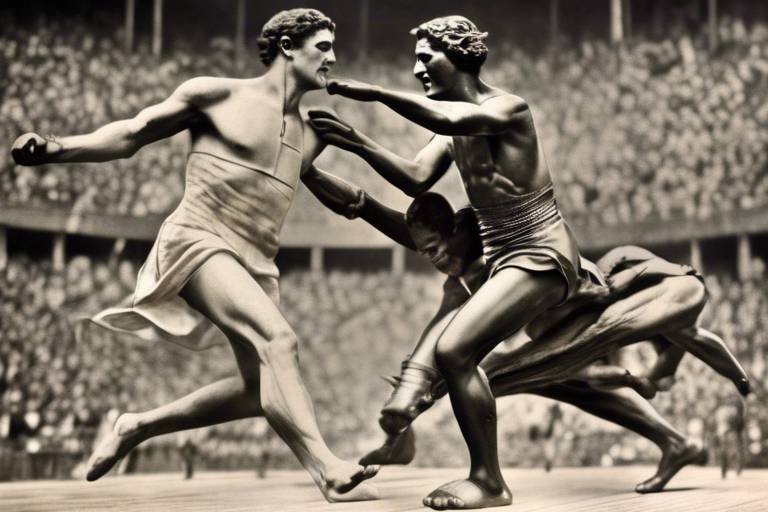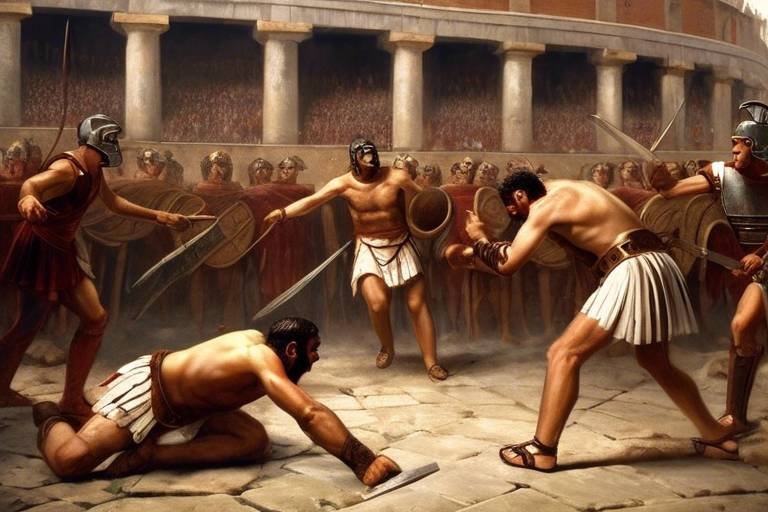The Historical Significance of the Boston Tea Party
The Boston Tea Party stands as a monumental event in American history, marking a turning point in the fight for independence from British rule. This act of defiance, carried out by American colonists in protest against unjust taxation policies imposed by the British government, ignited the flames of revolution and set the stage for the birth of a new nation.
On the surface, the Boston Tea Party may seem like a simple act of rebellion, but its historical significance runs much deeper. It symbolizes the unwavering spirit of resistance against oppression and the unyielding quest for freedom and self-determination. The echoes of that fateful night on December 16, 1773, still resonate through the annals of American history, reminding us of the courage and conviction of those who dared to challenge the status quo.
As we delve into the causes of the Boston Tea Party, we uncover a tapestry of grievances and frustrations that drove the colonists to take a stand. The Tea Act, which granted the British East India Company a monopoly on tea sales in the colonies, was the final straw that broke the camel's back. The colonists, already simmering with resentment towards British policies that they viewed as oppressive and unjust, saw this as a blatant attempt to trample on their rights and freedoms.
The participants and planners of the Boston Tea Party were a diverse group united by a common cause. Led by influential figures like Samuel Adams and supported by organizations such as the Sons of Liberty, these brave men and women orchestrated a carefully coordinated act of civil disobedience. The cloak of secrecy shrouding their plans added an air of intrigue and mystique to the operation, intensifying the element of surprise and catching the British authorities off guard.
On the night of the Boston Tea Party, a band of colonists disguised as Mohawk Native Americans descended upon British ships anchored in Boston Harbor. In a daring display of defiance, they dumped hundreds of chests of tea into the icy waters, sending a powerful message to the British Crown that they would not bow down to unjust taxation without representation. This brazen act of protest reverberated across the colonies, igniting a spark of rebellion that would soon engulf the entire nation.
The British response to the Boston Tea Party was swift and severe. In retaliation for the destruction of the tea, Parliament passed a series of punitive measures known as the Intolerable Acts, aimed at punishing the rebellious colonists and asserting British authority. However, far from quelling the unrest, these harsh measures only served to fan the flames of rebellion, pushing the colonies closer to the brink of open conflict.
The impact of the Boston Tea Party on the American Revolution cannot be overstated. It served as a rallying cry for colonial resistance, uniting disparate factions in a common cause against British tyranny. The spirit of defiance and determination that emerged from that fateful night laid the groundwork for the Declaration of Independence and the subsequent Revolutionary War, ultimately leading to the birth of a new nation founded on principles of liberty and democracy.
Today, the legacy of the Boston Tea Party endures as a symbol of American patriotism and the fight for freedom. It serves as a reminder of the power of ordinary people to effect change and stand up against injustice. Through reenactments, museums, and its portrayal in popular culture, the Boston Tea Party continues to shape our perceptions of American identity and the ongoing struggle for liberty and equality.
As we reflect on the historical significance of the Boston Tea Party, we are reminded of the enduring impact of that pivotal moment in American history. It challenges us to question authority, defend our rights, and uphold the values of freedom and democracy that have defined our nation since its inception. The Boston Tea Party stands as a testament to the power of collective action and the indomitable spirit of those who refuse to be silenced in the face of oppression.

Causes of the Boston Tea Party
The Boston Tea Party, a historic event that reverberates through the annals of American history, was not a mere act of rebellion but a culmination of various causes that ignited the flames of revolution. The primary catalyst for this iconic protest was the Tea Act imposed by the British government in 1773, granting the British East India Company a monopoly on tea sales in the American colonies. This move not only undercut local merchants but also symbolized British taxation without colonial representation, fueling resentment among the colonists.
Moreover, the simmering discontent among American colonists towards British policies, ranging from the Stamp Act to the Townshend Acts, had created a volatile atmosphere of opposition. The colonists' fervent desire for self-governance clashed with the increasing interference from across the Atlantic, leading to growing tensions and a sense of defiance against British authority.
As the seeds of dissent took root, influential figures such as Samuel Adams and organizations like the Sons of Liberty played pivotal roles in fanning the flames of resistance. Through clandestine meetings and meticulous planning, these individuals and groups orchestrated the logistics of the Boston Tea Party, shrouding their intentions in secrecy to evade detection by British authorities.

Participants and Planning
When delving into the historical significance of the Boston Tea Party, it is crucial to understand the key figures who played pivotal roles in organizing and executing this iconic protest. Among these participants, Samuel Adams emerges as a prominent figure, known for his fervent advocacy for colonial rights and resistance against British oppression. Adams, a founding member of the Sons of Liberty, orchestrated the clandestine operation that would go down in history as the Boston Tea Party.
The Sons of Liberty, a secret organization formed to protect the rights of the American colonists, were instrumental in planning and carrying out the protest. Operating under a veil of secrecy, they meticulously coordinated the events of December 16, 1773, ensuring that the British authorities remained unaware of their intentions. This element of clandestine planning added a layer of intrigue and suspense to the unfolding events of that fateful night.
Secrecy was paramount in the success of the Boston Tea Party, as it allowed the participants to maintain the element of surprise and catch the British off guard. By disguising themselves as Mohawk Native Americans, the colonists managed to conceal their identities and avoid repercussions for their actions. This strategic planning and execution underscored the determination and resolve of the American colonists in their stand against unjust British taxation.

Events of the Boston Tea Party
On the fateful night of December 16, 1773, the Boston Tea Party unfolded as a daring act of defiance against British taxation policies. Colonists, disguised as Mohawk Native Americans to conceal their identities, stealthily boarded three British ships: the Dartmouth, the Eleanor, and the Beaver. With a sense of purpose and determination, they proceeded to unload and cast overboard 342 chests of tea into the waters of Boston Harbor.
The atmosphere crackled with tension as the protesters worked swiftly yet silently, their actions symbolizing a resounding rejection of the unjust Tea Act imposed by the British government. The tea, worth a substantial sum, was sent to the depths of the harbor, creating a visual spectacle that reverberated across the colonies and beyond.
The event was not merely an act of vandalism but a strategic and symbolic statement against the tyranny of British rule. It was a bold declaration that the colonists refused to be subjugated and were willing to take drastic measures to defend their rights and liberties. The Boston Tea Party ignited a spark of resistance that would eventually blaze into the flames of revolution.

British Response and Consequences
After the Boston Tea Party, the British government responded swiftly and decisively to what they viewed as an act of rebellion. The British Parliament passed a series of punitive measures known as the Intolerable Acts in direct response to the destruction of the tea. These acts were aimed at punishing the colonists in Massachusetts and asserting British authority over the colonies.
One of the key consequences of the Boston Tea Party was the closure of the Boston Harbor, a vital lifeline for the city's economy. This blockade severely impacted trade and commerce in the region, causing economic hardship and further inflaming tensions between the colonies and Britain.
In addition to the harbor blockade, the Intolerable Acts also placed restrictions on town meetings in Massachusetts, expanded the powers of the royal governor, and allowed for British officials accused of crimes to be tried in Britain rather than the colonies. These measures were seen as oppressive and fueled resentment among the colonists.
The British response to the Boston Tea Party only served to escalate hostilities and push the colonies closer to open rebellion. The events following the protest laid the groundwork for the American Revolution, as the colonists increasingly saw themselves as fighting against tyranny and for their rights to self-governance.

Impact on the American Revolution
When examining the impact of the Boston Tea Party on the American Revolution, one cannot underestimate its significance in shaping the course of history. The event served as a catalyst, igniting the flames of rebellion and setting in motion a series of events that would ultimately lead to the birth of a new nation. By boldly defying British authority and asserting their right to self-governance, the colonists demonstrated their unwavering commitment to freedom and independence.
The Boston Tea Party galvanized colonial resistance against British oppression, uniting the thirteen colonies in a common cause. It fostered a sense of solidarity among the colonists, who stood together in defiance of tyranny. The act of dumping tea into Boston Harbor symbolized not only a protest against unjust taxation but also a declaration of their determination to fight for their rights and liberties.
Furthermore, the Boston Tea Party laid the groundwork for the Declaration of Independence and the Revolutionary War that followed. It inspired other acts of defiance and civil disobedience, fueling the spirit of revolution across the colonies. The event marked a turning point in the relationship between the American colonies and Britain, pushing them further towards open conflict and eventual separation.
The legacy of the Boston Tea Party in shaping the American Revolution cannot be overstated. It instilled a sense of patriotism and resilience in the hearts of the colonists, reminding them of the sacrifices necessary to secure their freedom. The spirit of defiance and determination that emerged from the event permeated throughout the revolutionary struggle, driving the colonists to stand firm in the face of adversity.

Legacy of the Boston Tea Party
When discussing the , it is essential to recognize the lasting impact this event has had on American history. The protest, where colonists defiantly dumped tea into Boston Harbor, served as a powerful symbol of resistance against unjust authority and paved the way for future movements advocating for freedom and democracy.
One of the most significant legacies of the Boston Tea Party is its role in shaping the American identity. The act of civil disobedience displayed by the colonists resonated with the ideals of liberty and self-governance, becoming a touchstone for American patriotism. The event continues to be celebrated as a defining moment in the nation's history, highlighting the courage and determination of those who stood up against oppression.
Furthermore, the Boston Tea Party inspired a spirit of activism and defiance that reverberated throughout the colonies. It served as a rallying cry for those who sought to challenge unjust laws and demand their rights as free citizens. The legacy of the protest fueled the flames of revolution, uniting the colonists in their fight against British tyranny and setting the stage for the birth of a new nation.
Moreover, the Boston Tea Party left a lasting imprint on the principles of democracy and individual freedoms. By taking a stand against oppressive policies, the colonists demonstrated the power of collective action and the importance of holding those in authority accountable. The legacy of the event continues to remind us of the enduring struggle for justice and equality that lies at the heart of the American experience.

Historical Perspectives and Interpretations
When delving into the historical perspectives and interpretations of the Boston Tea Party, one encounters a myriad of viewpoints that shape our understanding of this pivotal event. Textbooks often portray the protest as a bold act of defiance against British tyranny, highlighting the courage and determination of the American colonists. However, debates continue to swirl around the true significance of the Boston Tea Party. Some argue that it was merely a symbolic gesture with limited impact, while others view it as a catalyst that ignited the flames of revolution.

Commemorations and Cultural Impact
The Boston Tea Party holds a significant place in American history, not only for its role in sparking the American Revolution but also for its enduring cultural impact. Today, the event is commemorated in various ways that highlight its importance in shaping American identity and values.
One of the most common ways the Boston Tea Party is remembered is through historical reenactments. These reenactments aim to recreate the atmosphere of the protest, allowing people to experience firsthand the emotions and motivations behind the colonists' actions. By immersing participants in the events of that fateful night in 1773, these reenactments keep the spirit of rebellion and resistance alive.
In addition to reenactments, museums dedicated to preserving the history of the Boston Tea Party provide visitors with a deeper understanding of the context and significance of the event. Exhibits showcasing artifacts, documents, and interactive displays offer a glimpse into the past and educate the public about the impact of the protest on American history.
Furthermore, the Boston Tea Party's cultural impact extends beyond historical reenactments and museums. The event has become a symbol of civil disobedience and the fight for liberty and democracy, inspiring movements and protests around the world. Its legacy serves as a reminder of the power of ordinary people to stand up against injustice and oppression.
Moreover, the Boston Tea Party's place in popular culture has solidified its status as a symbol of American patriotism. References to the protest can be found in literature, music, art, and film, shaping perceptions of American history and the values that define the nation. By celebrating the courage and defiance of the colonists, popular culture keeps the spirit of the Boston Tea Party alive for future generations.
Frequently Asked Questions
- What were the main reasons behind the Boston Tea Party?
The Boston Tea Party was primarily a protest against the Tea Act imposed by the British government, which granted the British East India Company a monopoly on tea sales in the American colonies. This act was seen as a violation of colonial rights and a symbol of British oppression, leading to the famous protest in Boston Harbor.
- Who were the key figures involved in organizing the Boston Tea Party?
Notable figures involved in planning and executing the Boston Tea Party included Samuel Adams, a prominent political leader and member of the Sons of Liberty, along with other patriots who were dedicated to resisting British tyranny and fighting for colonial independence.
- What was the significance of disguising as Native Americans during the Boston Tea Party?
The colonists disguised themselves as Native Americans to symbolize their unity and to avoid individual identification, as well as to make a statement about their identity as Americans separate from British rule. This act of defiance and solidarity was a powerful message against British taxation.
- How did the British government respond to the Boston Tea Party?
Following the Boston Tea Party, the British government passed the Intolerable Acts, also known as the Coercive Acts, as a punitive measure against Massachusetts. These acts further fueled tensions between the colonies and Britain, ultimately contributing to the outbreak of the American Revolution.
- What long-term impact did the Boston Tea Party have on American history?
The Boston Tea Party served as a catalyst for the American Revolution, inspiring colonial unity and resistance against British authority. It paved the way for the Declaration of Independence and the eventual establishment of the United States as an independent nation founded on principles of liberty and self-governance.



















